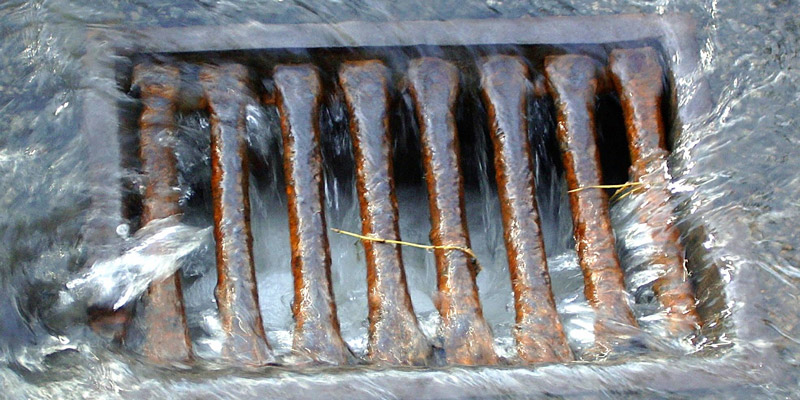Forecast Climate Change Impacts on Regional Hydrology and Water Supply in Canada
Principal Investigators - James Byrne, Professor, University of Lethbridge and Mohammad Dore, Professor, Brock University (2001-2004)

Challenge
Extreme precipitation events can have dramatic impacts on human health, as was seen in Walkerton on May 12, 2000. With warmer summer temperatures predicted for the future, which will influence volumes atmospheric water vapor, we can expect to see an increase in the occurrence and intensity of such events. This has serious implications for combined sewer overflows (CSOs), which are designed to collect rainwater runoff, household sewage, and industrial wastewater in the same pipe. During periods of heavy precipitation, the wastewater volume in a combined sewer system often exceeds the capacity of the sewer system or treatment plant. These overflows typically contain elevated levels of bacterial and other pathogenic organisms, which have the potential to affect public health, cultural and amenity values, and aquatic life. Thus, there is a need to reassess the design capacity of storm sewer systems and consider what design standard changes will be necessary to be sustainable in future.
Project
The project focused on the problem of combined sewer overflow and its effect on the Great Lakes Region. The project was divided into two case study areas: the Niagara Region and the Greater Toronto region. In Niagara, one of the major concerns of the impacts of climate change is the adaptation of the water infrastructure. In Toronto, there is the added challenge of continually expanding water infrastructure to meet the needs of a growing population.
The research covered the most effective and economical ways of preventing sewage overflows, which incorporated control methods such as source control, collection control, inflow/infiltration control, and treatment level control. The analysis showed that a municipality can select any combination of techniques according to their specific requirements. The research team also determined how climate change can affect precipitation levels, and therefore levels of storm water, in combined sewer systems. The Canadian General Circulation Model, which represents the climate system by calculating properties of the Earth’s atmosphere, was employed to project future precipitation scenarios for the years 2020, 2050 and 2080 based on climate information from 1961 to 1990.
The results indicate that the Great Lakes Region could experience a 15 percent to 25 percent increase in precipitation levels over next 50-100 years. The impact changes in precipitation levels will have on the ability of municipalities to pay for CSO abatement programs was assessed following a method proposed by the U.S. Environmental Protection Agency. The analysis concluded that, based on a median household income of $45,000 CAD, and an annual wastewater and CSO cost of $68 million CAD, the Niagara and Toronto regions can feasibly implement and finance any CSO control program.
Outputs
Development of decision support mechanisms for water utilities, which included training modules for water utility personnel and advanced forecasting models for water and wastewater.
Peer Reviewed Papers
Dore, M.H.I., 2003. “Valuing Environmental Degradation and Costing Remediation: Is Economics Part of the Problem?” (With Ian Burton) Journal of Environmental Monitoring and Assessment, volume 86, issue 1, July.
Lapp, S., J. Byrne, S. Kienzle and I. Townshend, 2002. Linking Global Circulation Model synoptics and precipitation for western North America. Int. J. Climatol. 22: 1807–1817.
Presentations and Publications
Byrne, J., 2003. Assessing Climate Change Impacts in an Integrated Watershed Management Framework. Canadian Meteorological and Oceanographic Society (CMOS) Congress on Atmosphere-Ocean Science: Impacts and Innovation Session on Impacts of Climate Change on Society, June 2-5, 2003, Ottawa, Ontario. Invited presentation.
Dore, M.H.I., 2002. “Climate Change and Sustainable Urban Infrastructure: Niagara as a Case Study”, (with Chado Brcic), in INFRA 2002, Proceedings of the 8th Annual Urban Infrastructure Week, Centre for Expertise and Research on Infrastructures in Urban Areas (CERIU), Montreal, Quebec, Nov. 25-27, 17 pages. Refereed
Theses
Sadiq, Wael (2003), thèse de M.A.Sc. Modelling Water Demand and Considering Climate Change: A Toronto Case Study,Civil Engineering, U. Toronto, 114 p.
Koycheva, Julia (2003), thèse de M.A.Sc., Modelling Stream Water Temperature with Consideration of Vulnerability to Climate Change: A Greater Toronto Case Study, Civil Engineering, U. Toronto.
Outcomes
- Several researchers have played a strategic role in developing Canada’s Guides for Sustainable Municipal Infrastructure. New regulations in Ontario, for example, require a significant reduction in untreated discharges.
- Results from this research will help develop public policy in the water supply and demand management, through better training, better planning and new management tools.
- Much of the research was oriented towards developing decision support mechanisms for water utilities, which included training modules for water utility personnel and advanced forecasting models for water and wastewater. These end products are highly marketable in the volatile world of safe drinking water, and will greatly improve water and health management policy and planning.




